September 2013
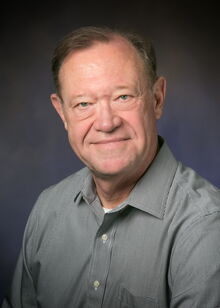
Fred Hoxie, Swanlund professor of history, has been named the winner of the 2013 Caughey Western History Association Prize for the most distinguished book on the history of the American West. His book, This Indian Country: American Indian Activists and the Place They Made, was published in 2012 by Penguin.
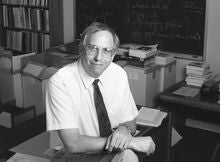
Don Wuebbles, professor of atmospheric sciences, has received the Cleveland Abbe Award for Distinguished Service to the Atmospheric Sciences. The award, given by the American Meterological Society, is “for tireless and highly effective contributions to the society through rigorous scientific analysis and distinguished public engagement.”
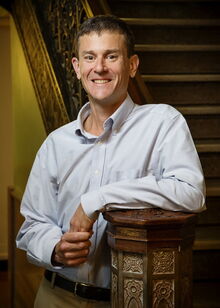
Scott Ahlgren, professor of mathematics, has been recognized as a University Scholar. The program recognizes excellence in teaching, scholarship, and service. He conducts research on modular forms, best known for their role in Wiles’ proof of Fermat’s Last Theorem. He is a consummate number theorist, engaging successfully with difficult and important classical and modern problems.
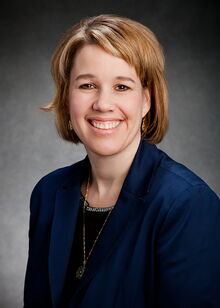
Susan A. Martinis, professor of biochemistry, has been recognized as a University Scholar. The program recognizes excellence in teaching, scholarship, and service. Her research explores the function of cellular macromolecules, particularly RNA and its interaction with proteins. This has proven to be a pivotal area in evolutionary biology.
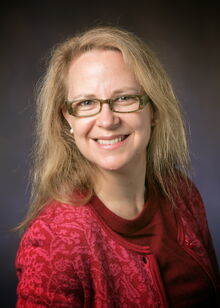
Silvina Montrul, professor of Spanish and Portuguese, and of linguistics, has been recognized as a University Scholar. The program recognizes excellence in teaching, scholarship, and service. Her research focuses on the broad question of the nature of the linguistic knowledge of speakers who possess varying degrees of competency in more than one language, and what that research reveals about the mental representation of grammars in the mind.
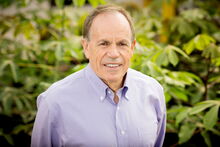
Stephen Long, Gutgsell Professor in plant biology, has been appointed by the Center for Advanced Study to its permanent faculty. This is one of the highest honors the University of Illinois campus bestows for outstanding scholarship. Long studies photosynthetic efficiency, focusing on global change. He has led the development of SoyFACE and the Urbana-campus component of the biofuels research initiative, Energy Biosciences Institute. He now directs projects funded by the Gates Foundation and the U.S. Department of Energy.
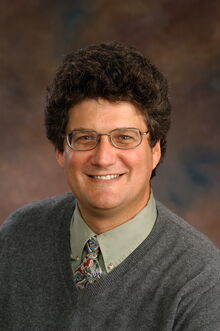
Jonathan Sweedler, Eiszner Family Professor of Chemistry, has been appointed by the Center for Advanced Study to its permanent faculty. This is one of the highest honors the University of Illinois campus bestows for outstanding scholarship. His research emphasis is on analytical neurochemistry, focusing on investigating the roles that peptide hormones, neurotransmitters and neuromodulatory agents play in behavior, learning, and memory.
Maria Todorova, Gutgsell Professor of history, has been appointed by the Center for Advanced Study to its permanent faculty. This is one of the highest honors the University of Illinois campus bestows for outstanding scholarship. Her research focuses on the symbolism of nationalism, national memory, and national heroes in Bulgaria and the Balkans, as well as problems of socialism and post-communism.
August 2013
Dina Zinnes, professor emerita of political science, has won two awards for her career and scholarship. In October, the Peace Science Society will award her its Founder’s Medal. The medal is given every four years to an “individual who has made significant and distinguished lifelong scientific contributions to peace science.” In March 2014, the International Studies Association will present Zinnes with its Susan Strange Award, given annually to recognize “a person whose singular intellect, assertiveness, and insight most challenge conventional wisdom and intellectual and organizational complacency in the international studies community.”
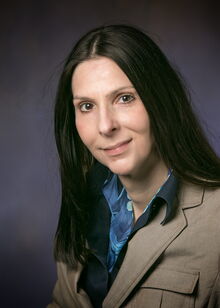
Mary Kraft, assistant professor of chemical and biomolecular engineering, is the recipient of the 2014 Walter A. Shaw Young Investigator Award in Lipid Research from the American Society for Biochemistry and Molecular Biology. She has made important discoveries related to the sphingolipid and cholesterol organization in cell membranes that have major implications for our understanding of plasma membrane organization.
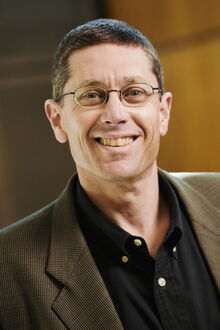
Gene Robinson, Swanlund Chair of entomology, is the recipient of the Animal Behavior Society’s 2013 Distinguished Animal Behaviorist award. The Animal Behavior Society was founded in 1964 to advocate for the study of animal behavior in both the field and the laboratory. Robinson is best known for his studies of the mechanisms and evolution of social behavior in the Western honey bee.
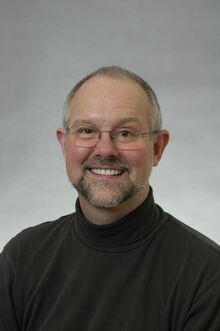
Marshall Scott Poole, professor of communication and director of the Institute for Computing in the Humanities, Arts, and Social Sciences, received the 2013 Joseph E. McGrath Award for Lifetime Achievement in the Study of Groups. The award, granted by the Interdisciplinary Network for Group Research, recognizes someone “whose work has shown an enduring commitment to advancing the interdisciplinary science of team or small group behavior, dynamics, and outcomes.”
July 2013
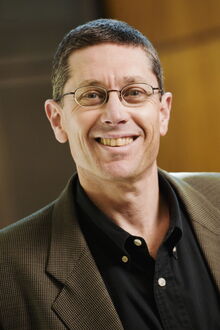
Gene Robinson, Swanlund Chair of entomology and director of the Institute for Genomic Biology, will receive the iBIO Institute’s 2013 iCON Innovator Award for excellence in teaching and scholarship. Established by the Illinois Biotechnology Industry Organization, the iBIO Institute works to educate students and teachers about the biotech industry as well as provide specialized resources for Illinois-based startups.
June 2013
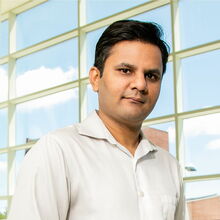
Prashant Jain, professor of chemistry, is one of 14 professors who will receive the 2013 DuPont Young Professor Award. The grant program fosters promising young and untenured research faculty members.
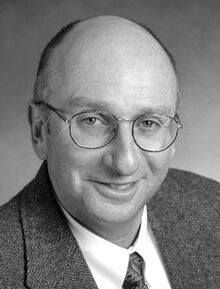
Bruce Michelson, professor of English, has been named a Fulbright grantee for 2013-2014. He will embark on an educational exchange with the University of Antwerp, where he will serve as Fulbright Professor of American Studies. His duties will include leading seminars on American writers and the cultural impact of the sciences of the mind, giving guest lectures, and working on a new book. Michelson is director of the Campus Honors Program. He is also president of the American Humor Studies Association and past president of the Mark Twain Circle of America.
May 2013
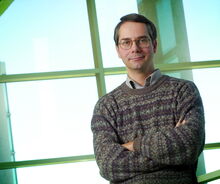
Martin Gruebele, the James R. Eiszner Endowed Chair in Chemistry, has been elected a fellow of the National Academy of Sciences. Election to the NAS is one of the highest professional honors a scientist can garner. Using laser manipulation techniques and computational modeling, his work has increased the understanding of protein folding in the test tube and in living cells, how energy flows through molecules, and how glass surfaces morph and move.
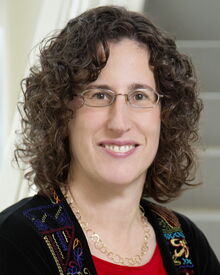
Sharon Hammes-Schiffer, a Swanlund Professor of Chemistry, has been elected a fellow of the National Academy of Sciences. Election to the NAS is one of the highest professional honors a scientist can garner. A world leader in theoretical and computational chemistry, her research focuses on chemical reactions in solution, in proteins, and at electrochemical interfaces, particularly the transfer of charged particles driving many chemical and biological processes.
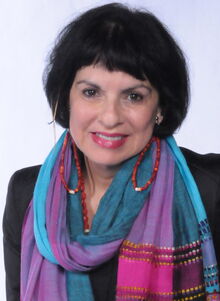
LeAnne Howe, professor of English and American Indian studies, was among 54 artists to receive a 2012 USA Fellowship from United States Artists, with an unrestricted grant of $50,000. Howe received an award for literature.
Stephen P. Long, the Gutgsell Endowed Professor of Plant Biology and Crop Sciences and a member of the Institute for Genomic Biology, has been elected as a fellow of the Royal Society of London, the world’s oldest scientific academy in continuous existence. Members are elected for life on the basis of excellence in science, via a thorough peer review process. Long has been recognized for his leadership in research on the limits to photosynthetic productivity of crops, and how these are altered by global atmospheric change.
April 2013
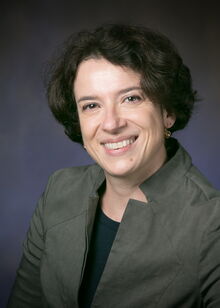
Eleonora Stoppino, associate professor of French and Italian, received the American Association for Italian Studies Book Prize for 2012 in the category Medieval, Renaissance and Baroque, for her work, Genealogies of Fiction (Fordham UP, 2012). Genealogies of Fiction is a study of gender, dynastic politics, and intertextuality in medieval and renaissance chivalric epic, focused on Ludovico Ariosto’s Orlando furioso.
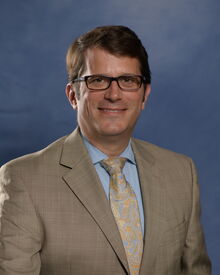
Kirk Sanders, associate professor of Classics, has been named a recipient of the Campus Award for Excellence in Undergraduate Teaching. The peer-nominated awards recognize professors, instructional staff members and graduate teaching assistants who display consistently excellent performance in the classroom, take innovative approaches to teaching, positively affect the lives of their students, and make other contributions to improve instruction, including influencing the curriculum.
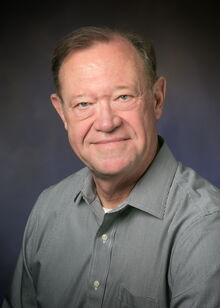
Frederick Hoxie, Swanlund Professor of History, has been elected a fellow of the American Academy of Arts and Sciences. One of the nation’s most prestigious honorary societies, the academy is also a leading center for independent policy research. Hoxie has published more than a dozen books on U.S. Indian policy, the history of Native American communities, and the meaning of indigenous history in modern society.
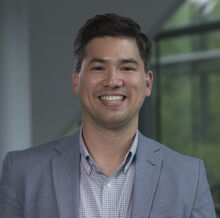
Michael Kraus, assistant professor of psychology, has been named a Rising Star by the Association for Psychological Science. This nonprofit organization is dedicated to the advancement of scientific psychology and its representation at the national and international level.
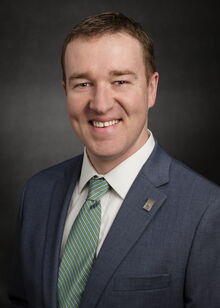
Brendan Harley, assistant professor of chemical and biomolecular engineering, has received a five-year National Science Foundation Faculty Early Career Development Award, which will allow Harley and his research team to develop a synthetic bone marrow biomaterial to aid the study of hematopoiesis and hematopoietic diseases.
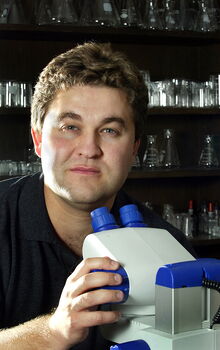
Barry Pittendrigh, professor of entomology, and co-founder of Scientific Animations Without Borders, received the team award for the 2013 Campus Awards for Excellence in Public Engagement for SAWBO. The SAWBO initiative has so far produced educational materials on more than a dozen topics related to health, agriculture, sustainability, and entrepreneurship that can be viewed via cell phones in developing countries.
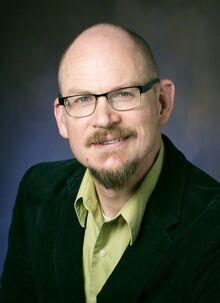
Ted Underwood, associate professor of English, was named a recipient of the 2013 American Council of Learned Societies Digital Innovation Fellowships. Fellows spend a year dedicated to a major scholarly project intended to advance digital humanistic scholarship in new directions. Underwood’s project is “Understanding Genre in a Collection of a Million Volumes.” His work focuses on making it possible to recognize genre algorithmically and shows that a digital approach has several important advantages.
March 2013
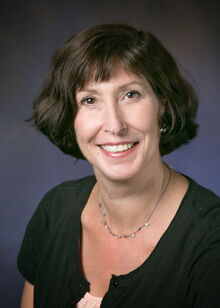
Carol Symes, professor of history, was selected by the American Council of Learned Societies for a Frederick Burkhardt Residential Fellowship for Recently Tenured Scholars. The fellowship, funded by the Andrew W. Mellon Foundation, will be at the National Humanities Center for the 2013-14 academic year with a stipend of $75,000.
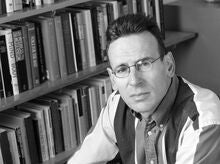
Mark Micale, professor of history, was named this year’s Distinguished Teacher-Scholar, which is sponsored by the Office of the Provost. Micale plans to use this title to address the challenges professors face in trying to connect the front of the general education classroom to the back. He has begun a research project to study which approaches on campus have been most successful in teaching large groups of students. The information he gathers will be used to create an abstract and to develop a resource guide sharing best teaching practices and techniques that can be duplicated in any large-class setting.
February 2013
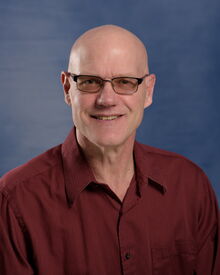
Bruce Rhoads, professor of geography and geographic information science, was recruited to serve as one of eight U of I faculty fellows for the National Great Rivers Research and Education Center. The center is a partnership among the U of I, Prairie Research Institute’s Illinois Natural History Survey, and Lewis and Clark Community College. The center is located near the confluence of the Mississippi, Missouri, and Illinois rivers in East Alton, Ill. Rhoads will help advance the research and educational missions of the center and better integrate the extensive research program he developed on the Wabash River.
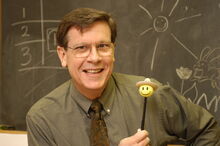
Ed Diener, the Joseph R. Smiley Distinguished Professor of Psychology, is a recipient of the William James Lifetime Achievement Award for basic research, presented by the Association for Psychological Science. Diener’s scholarly work largely focuses on the concept of happiness and its influences, such as cultural, monetary, and personality factors.
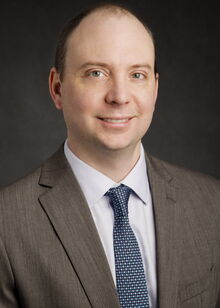
Charles Schroeder, professor of chemical and biomolecular engineering, received a five-year National Science Foundation Faculty Early Career Development Award. The award will help Schroeder and his research team carry out new and cutting-edge molecular-level studies of branched polymer chains.
January 2013
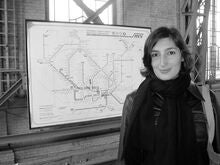
Yasemin Yildiz, assistant professor of Germanic languages and literatures, received the Aldo and Jeanne Scaglione Prize for Studies in Germanic Languages and Literatures from the Modern Language Association of America for her book, Beyond the Mother Tongue: The Postmonolingual Condition, published by Fordham University Press. The prize is awarded biennially for an outstanding scholarly work on the linguistics or literatures of the Germanic languages, including Danish, Dutch, German, Icelandic, Norwegian, Swedish, and Yiddish.
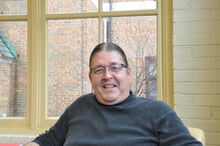
Robert Warrior, professor of American Indian studies, English, and history, and director of American Indian studies at U of I, has appeared in the Ultimate Guide to the Presidents, a four-part documentary on the History Channel offering stories and insight to describe how the White House has evolved during the past 200 years.
December 2012
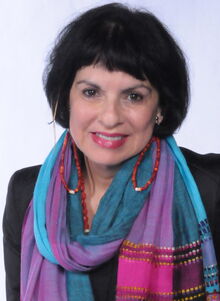
LeAnne Howe, professor of American Indian studies and English, won a USA Ford Fellowship in literature from United States Artists. The organization honors 50 of America’s finest artists each year with individual $50,000 fellowship awards.
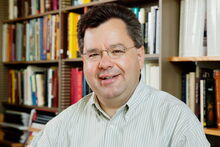
Craig Koslofsky, professor of history and author of Evening’s Empire, was recognized for his work in writing one of the 15 best books reviewed by Atlantic magazine. Koslofsky’s book appeared in the list of 10 runners-up, just behind the top-five list for 2012. In addition, the book was also named in January as the Longman-History Today Book of the Year for 2011.
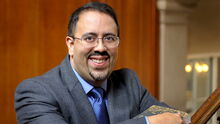
Adrian Burgos, professor of history, was featured in a documentary by Chicago’s public broadcasting station WTTW. In the documentary about former White Sox baseball legend Minnie Minoso, Burgos discusses Minoso’s social and historical significance.
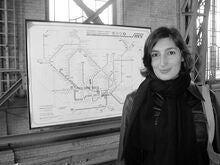
Yasemin Yildiz, associate professor of Germanic languages and literatures and gender and women’s studies, was awarded the Modern Language Association of America’s Aldo and Jeanne Scaglione prize for Studies in Germanic Languages and Literatures. Yildiz was recognized for her book, Beyond the Mother Tongue: The Postmonolingual Condition, which the MLA committee described as a “highly ambitious study [that] directly engages an important contemporary discussion of transnational writers and of the denationalizing of literature in an era of globalization.”
November 2012
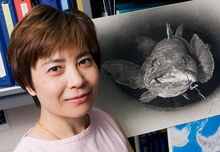
Chi-Hing Christina Cheng, professor of animal biology, was named a fellow of the American Association for the Advancement of Science. Election as a fellow is an honor bestowed upon members of the association by their peers. Cheng was selected for her “distinguished contributions to the field of molecular evolution, focusing on molecular mechanisms that lead to the creation of novel genes and adaptive protein functions under environmental extremes.”
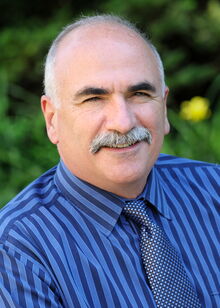
Neal Cohen, professor of psychology, and director of the Neuroscience Program, was named a fellow of the American Association for the Advancement of Science. Election as a fellow is an honor bestowed upon members of the association by their peers. Cohen was recognized for his “pioneering research on memory and amnesia, distinguishing brain systems and psychological characteristics that distinguish declarative and procedural memory.”
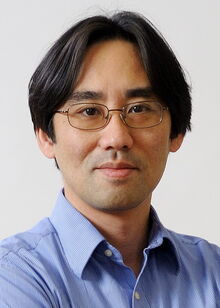
So Hirata, professor of chemistry, was named a fellow of the American Association for the Advancement of Science. Election as a fellow is an honor bestowed upon members of the association by their peers. Hirata was selected for “distinguished contributions to the development and implementation of electronic and vibrational many-body theories with periodic boundary conditions to predict the properties of matter in condensed state.”
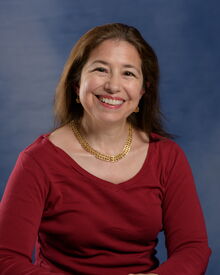
Lisa Lucero, professor of anthropology, was named a fellow of the American Association for the Advancement of Science. Election as a fellow is an honor bestowed upon members of the association by their peers. Lucero was honored for “distinguished service in the field of archaeology, with emphasis on the role of water management in Maya society and its contemporary implications.”
Benjamin McCall, associate professor of chemistry, astronomy, and physics, has been elected a fellow of the American Physical Society. McCall has built an exciting research program in the emerging field of astrochemistry. His team’s work probes the network of chemical reactions responsible for the formation of most molecules in the universe, and so has profound implications for our understanding of the origins of the universe and life.
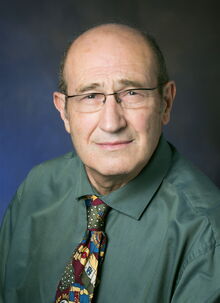
Mahir Şaul, professor of anthropology, received Utne Reader magazine’s Visionaries Award for his role as a “debunker of African stereotypes.” For 15 years, Şaul has taught a course on African film and society, emphasizing their vast intellectual and cultural accomplishments. Last winter, he introduced the first African film series to Instanbul Museum of Modern Art audiences.
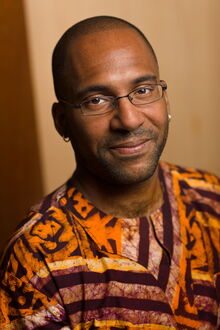
Erik S. McDuffie, associate professor of African American studies, has been awarded the Wesley-Logan Prize by the American Historical Association for his book, Sojourning for Freedom: Black Women, American Communism, and the Making of Black Left Feminism (Duke Univ. Press). The prize is offered for a book on some aspect of the history of the dispersion, settlement and adjustment, and/or return of peoples originally from Africa.
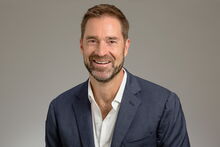
Brent Roberts, professor of psychology, received the 2012 Henry Murray Award from the American Psychological Association (APA). As the winner, Roberts will present the Murray Award address at the association's meeting the following year. The APA’s mission is to advance the creation, communication, and application of psychological knowledge to benefit society and improve people’s lives.
Harry Triandis, professor emeritus of psychology, will receive recognition in the Federation of Associations in Behavioral and Brain Sciences Foundation’s “In Honor of...” program for his contributions to the field. The federation is a coalition of scientific societies that share an interest in advancing the sciences of mind, brain, and behavior.
October 2012
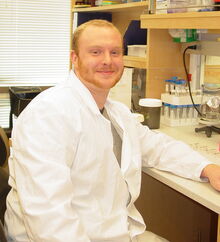
Douglas Mitchell, professor of chemistry, has been named a Packard Fellow for outstanding creative research. Blending chemistry and biology, Mitchell works to understand the molecular roots of what make bacteria infectious, with the goal of addressing antibiotic resistance and exploring new antimicrobial agents. The Packard fellowship includes an unrestricted five-year, $875,000 award to support research of the recipient’s choosing. Mitchell’s award will support a new project that aims to develop unconventional methods to manipulate microbial genomes.
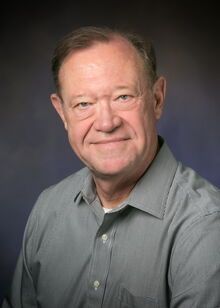
Fred Hoxie, professor of history, was awarded the Western History Association’s American Indian History Lifetime Achievement Award. The award is in recognition of Hoxie’s many years of advancing the field of American Indian history, through publications, a commitment to helping Native and other students in the filed, and through service that includes working with tribal communities.
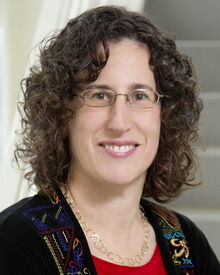
Sharon Hammes-Schiffer, professor of chemistry, has been selected as one of 220 new members that will be inducted into the American Academy of Arts and Sciences, one of the oldest honorary societies in the nation. New members join the ranks of Albert Einstein, Ralph Waldo Emerson, Benjamin Franklin, and George Washington. Hammes-Schiffer is a world leader in theoretical and computational chemistry. Her research focuses on chemical reactions in solution, in proteins, and at electrochemical interfaces, particularly the transfer of charged particles driving many chemical and biological processes.
September 2012
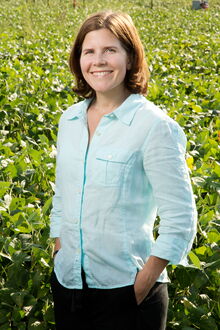
Elizabeth Ainsworth, professor of plant biology, was one of seven Urbana campus faculty members recently named University Scholars. The program recognizes excellence in teaching, scholarship, and service. Ainsworth works at the interface of basic and translational plant biology. She has investigated the current and potential impacts of global and environmental change on natural and managed plant ecosystems.